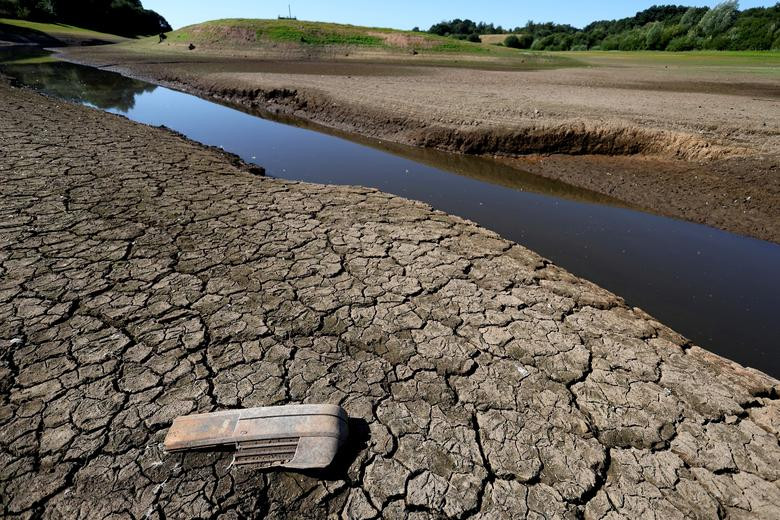From Asia to Europe, many countries are struggling with extreme weather phenomena such as extreme heat and prolonged drought. Asian people have to experience very hot days, creating a negative impact on people’s health and daily life.
In the Thai capital of Bangkok, the temperature sometimes reached a record high of 54 degrees Celsius in the Bangna district. Authorities have called for people to avoid going out because the heat can be deadly. Bangladesh also saw its highest temperature in nearly 60 years.
In India, dozens of people were hospitalised due to the heat. In the past, heat waves in India used to happen from March to July, but recently, heat waves have become more severe and prolonged.
Climate change has also been hitting Europe, which has been known for its mild climate, increasing the risk of drought. Prolonged drought has caused Spain's water reservoirs to reach only 50% of their capacity. Recently, the country had to ask the European Union (EU) to provide for farmers affected by severe droughts with emergency aid.
Meanwhile, BRGM, the French geological survey, predicted that the country's drought in the summer of 2023 may be more severe than last summer, as groundwater levels are very low. The replenishment of water is a challenge because France has just experienced a relatively dry winter.
Many climate meetings were held and many climate calls and commitments have been made. This is a good signal, showing that people's general awareness of the importance of environmental protection has been increasing day by day. However, the series of natural disasters caused by climate change, such as record-breaking heat waves or super typhoons, is a wake-up call for people to act more quickly and boldly.
The World Meteorological Organisation (WMO) predicted that the probability of an El Nino phenomenon occurring will be 60% by the end of July and 80% by the end of September. WMO Secretary-General Petteri Taalas stressed that this phenomenon will lead to changes in weather and climate patterns worldwide, so countries need to prepare early effective warning systems, to ensure people’s safety.
UN Secretary-General Antonio Guterres said climate change has been making living conditions on Earth more difficult.
According to Antonio Guterres, every year of insufficient action to curb global warming, the world will move closer to the brink, face more systemic risks and reduce our resilience against climate catastrophe.
President of the 28th United Nations Climate Change Conference (COP28) called on the parties to increase the use of renewable energy, as well as urged developed countries to provide a 100 billion USD per year climate finance package, to support developing countries as committed. The financial issue has always been a sticking point, causing much controversy in the recent climate negotiations.
The price to pay for climate change has been increasingly high, with extreme weather events occurring more frequently, severely threatening human life. After the commitments and promises, the countries need to take action in a substantive, quick and responsible manner, to race against time to protect the Earth before it is too late.
















